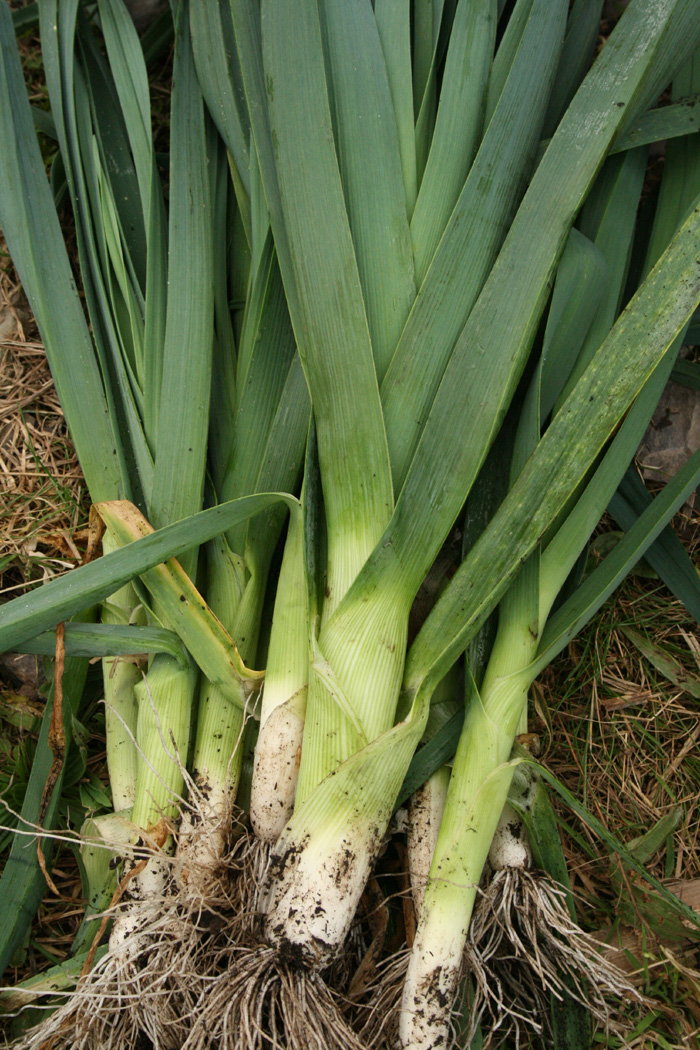
March 21, 2012
Everyone will have:
* onions (Camel CSA)
* carrots (Camel CSA)
* swiss chard (Camel CSA)
* savoy cabbage (Camel CSA)
* parsley (Camel CSA)
* leeks (St Kew Harvest)
potatoes ((Burlerrow Farm, St Mabyn)
Standard boxes will get extra potatoes and onions plus:
* oriental salad leaves (Camel CSA)
* red cabbage (Camel CSA)
cauliflower (Camel CSA/Restharrow Farm, Trebetherick)
* = grown to organic principles
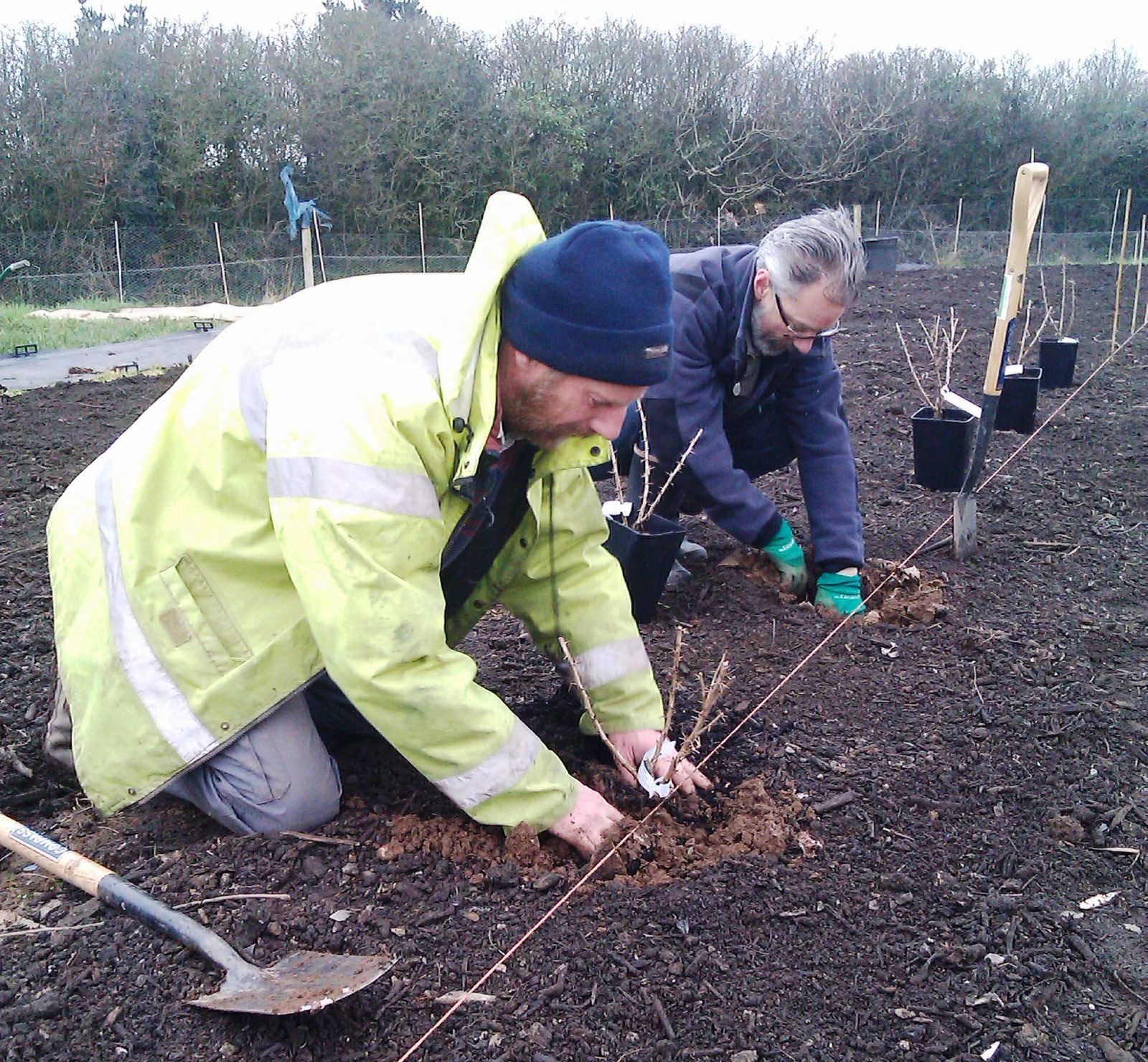
March 17, 2012
Camel CSA’s growing team has another list of jobs to get through this Sunday, as the weather warms up.
Everyone is welcome to join in between 10am and 12 noon on Sunday.
Some of the jobs have been done by expert grower Bridget Gould but we still need to: –
• Plant the last of the gooseberries and raspberries in the soft fruit area
• Sow radishes in the root bed
• Plant turnips from modules into the root bed and cover in fleece
• Plant one and a half beds of onion sets (Cupido)
• Set up the cold frames

• Water the polytunnels (overwintered salad leaves and early crops of radishes, spring onions, carrots, broad beans, mange tout peas)
• Cut the grass on the paths and around the sheds (as we didn’t have time to last week)
Remember to wear stout footwear, bring a waterproof and don’t forget a snack! We will provide protective gloves.
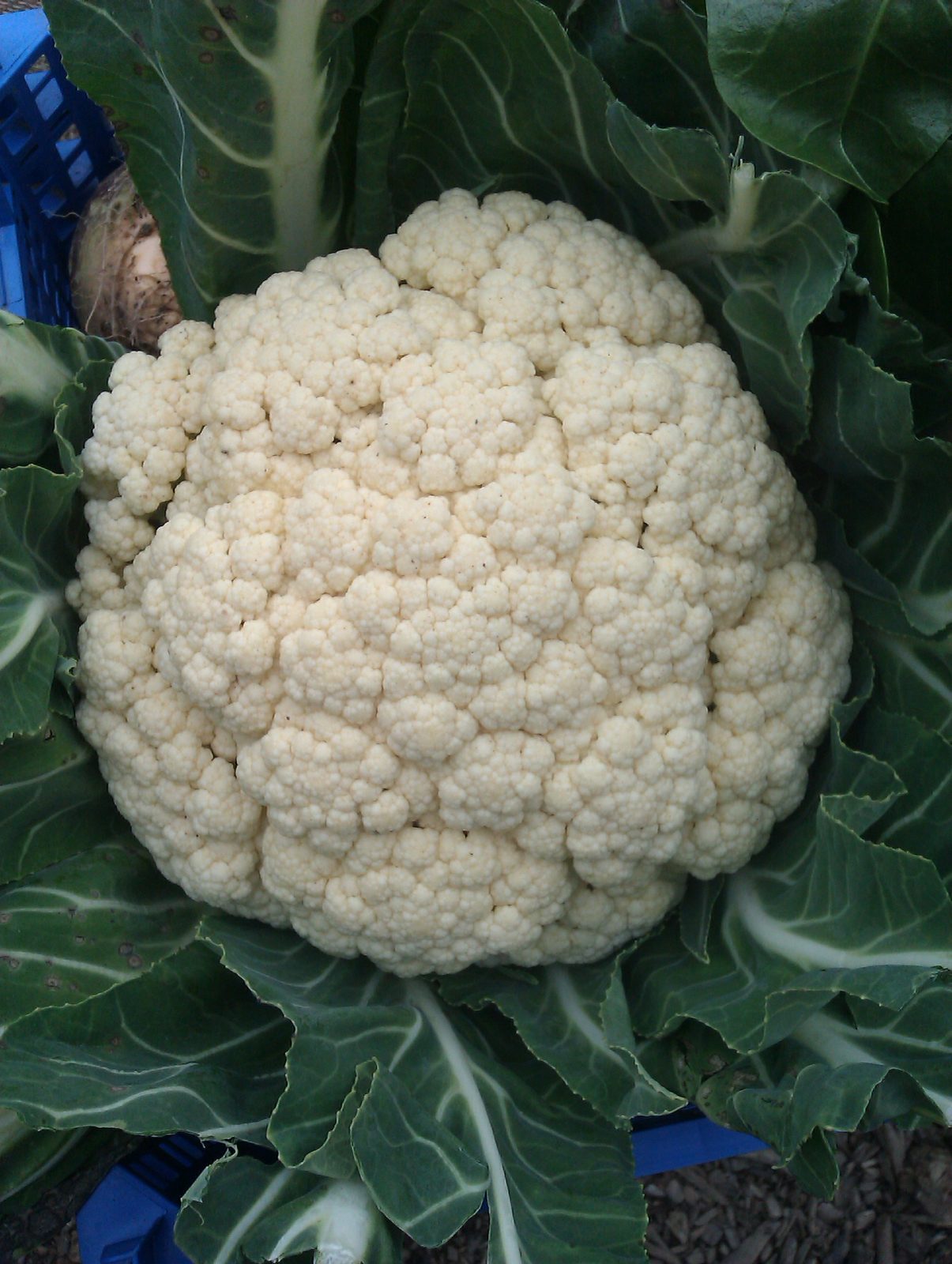
March 16, 2012
Roasted cauliflower is trending everywhere at the moment – even on BBC’s Masterchef. It seems that roasting this “Marmite” vegetable can transform dyed-in-the-wool cauliflower haters into lifelong fans.
San Francisco-based foodie Darya Pino considers this her best recipe of all time (that’s some claim!)
She says: “What’s weird is that this is just roasted cauliflower, it couldn’t sound any less glamorous. The coolest part of all is that anyone (like ANY anyone) can make this.
“I like to add curry powder to mine, but you can play around with whatever spices you like, or just make it plain. It still freaks me out how good this recipe is.”
Serves: 2-4
Preparation: 10 minutes
Cooking time: 30-35 minutes
Ingredients
1 large cauliflower (or several small ones)
curry powder
olive oil
sea salt
Method
Preheat oven to 250C, Gas Mark 9. Meanwhile break the cauliflower into medium-small florets and place into a large bowl or baking pan. Be sure the pieces are as evenly sized as possible, or they will cook unevenly. The smaller you make the pieces, the quicker they will cook and the more caramelized they will become.
Drizzle cauliflower pieces generously with olive oil and season well with salt and curry powder. Distribute evenly in a single layer at the bottom of a baking pan. If necessary, use a second baking pan to be sure the pieces aren’t too crowded.
Cover the pans with foil and place into the oven. Roast, covered, for 10-15 minutes. The cauliflower should be slightly soft and start looking translucent. If not replace foil and cook another 5 minutes.
When the cauliflower has finished steaming, remove the foil and toss with tongs. Continue to roast, stirring every 8-10 minutes until the tips of the cauliflower begin to brown and become crisp. Approximately 30-35 minutes.
Adjust salt to taste (you will probably need another sprinkle) and serve.
- Believe it or not, Hugh Fearnley-Whittingstall suggests making roasted cauliflower as a nibble to go with drinks. He seasons it with lemon juice and smoked paprika before roasting or putting it on the barbeque.
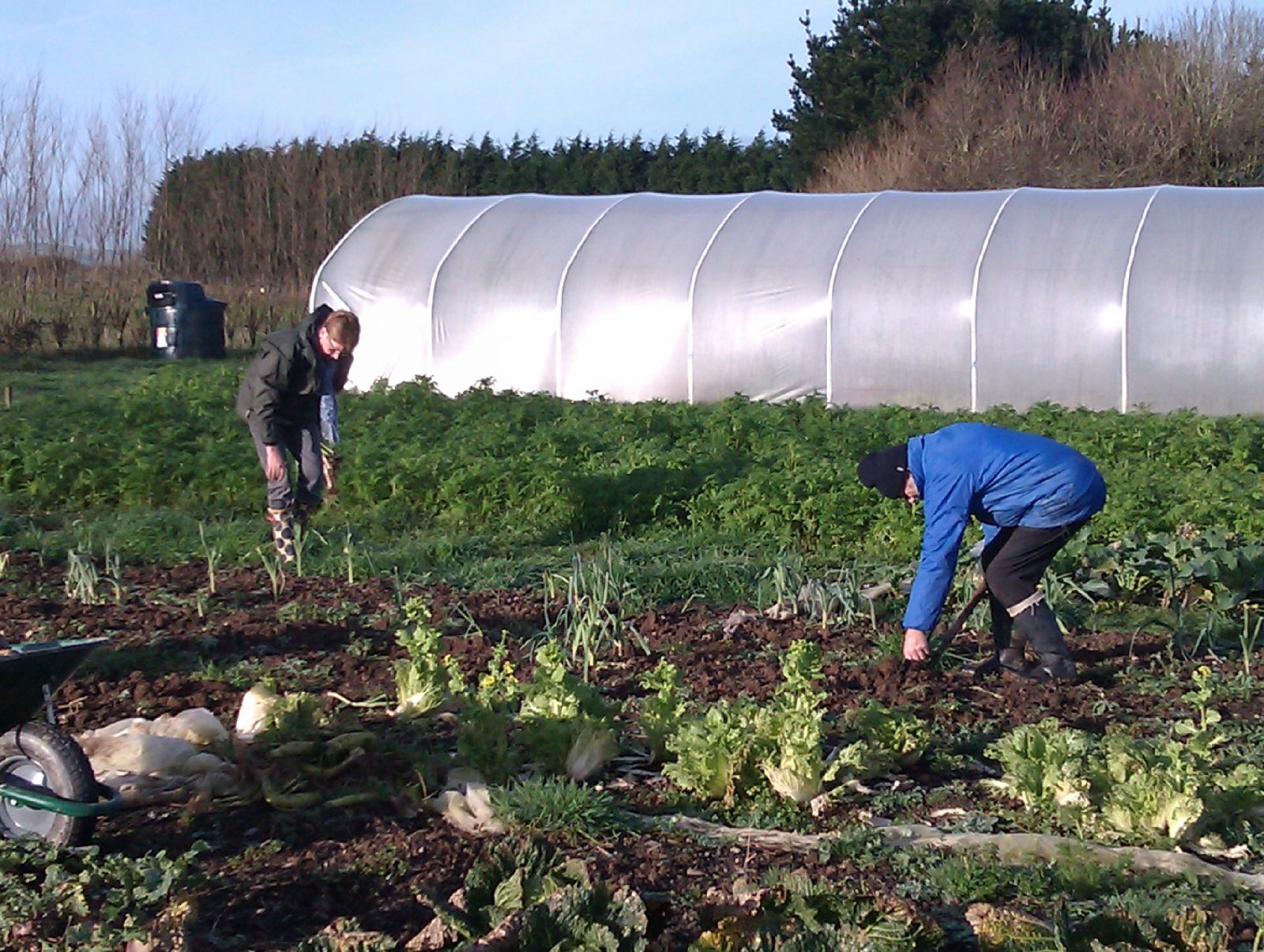
March 15, 2012
Everyone will have:
* onions (Camel CSA)
* swede (Camel CSA)
* salad leaves (Camel CSA)
* carrots (Camel CSA)
* kale (Camel CSA)
cauliflower (Restharrow Farm, Trebetherick)
potatoes (Burlerrow Farm, St Mabyn)
Standard boxes will have extra onions and potatoes plus:
* swiss chard (Camel CSA)
* parsnips (Camel CSA)
* leeks (St Kew Harvest)
* = grown to organic principles
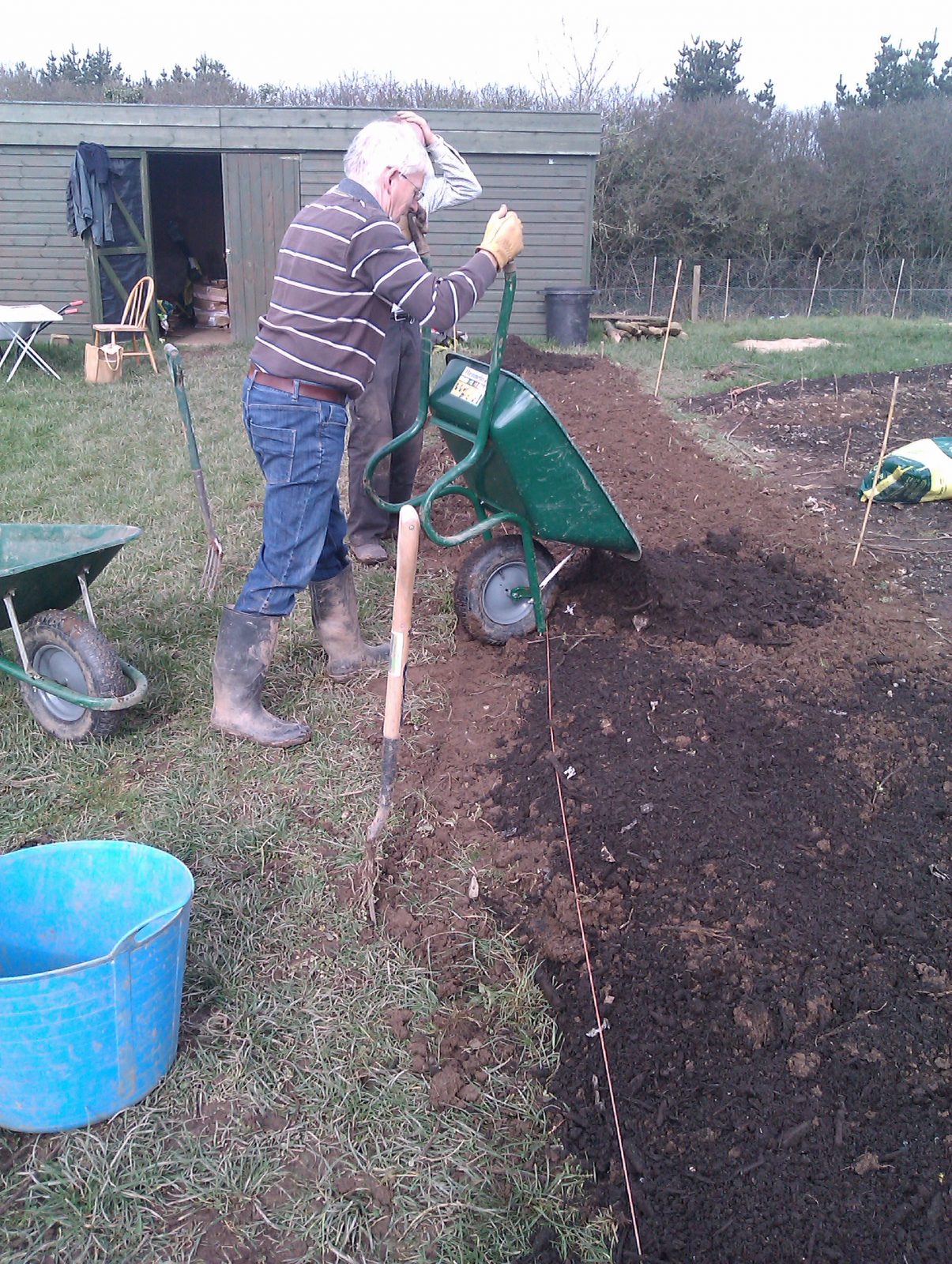
March 10, 2012
We’re in the midst of our spring growing rush so we’ve got loads of things to do on Camel CSA’s community vegetable plot. Jobs this Sunday include: –
• Putting compost on onion beds
• Planting onion sets
• Digging out dock weeds (really important so don’t get bigger)
• Clearing the legume beds
• Sowing calabrese seeds
• Cutting the grass
And finally…
• Washing down the interior of the polytunnels
We also need to find time to tidy the sheds, carry out some simple repairs, and make an inventory of our tools and miscellaneous equipment.
Oh – and sort out the seed packets!
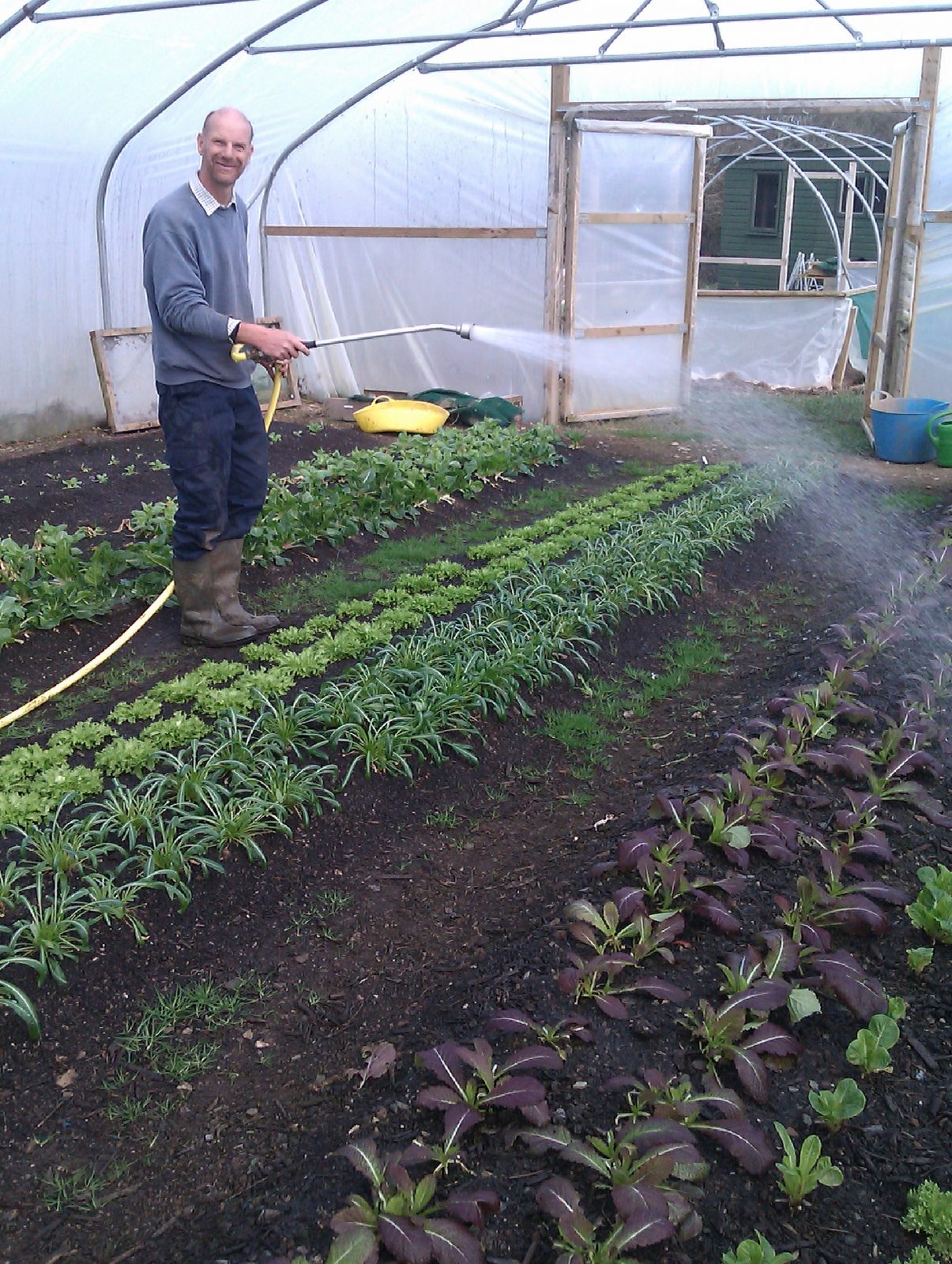
March 9, 2012
Camel CSA’s over-wintered cut and come again salad leaves are loving the longer days and warmer weather.
We’re growing a mixture of oriental and more traditional leaves – spicy red mustard, mizuna and mibuna, pak choi, curly endive, lettuce, rocket and parsley in one of our polytunnels.
We harvested several healthy crops before Christmas, then let the plants rest during the short dark days of mid-winter.
Now we’ve all got an enormous bag of healthy, crunchy, green leaves in our weekly veg boxes and should continue to enjoy a regular supply for several weeks to come.
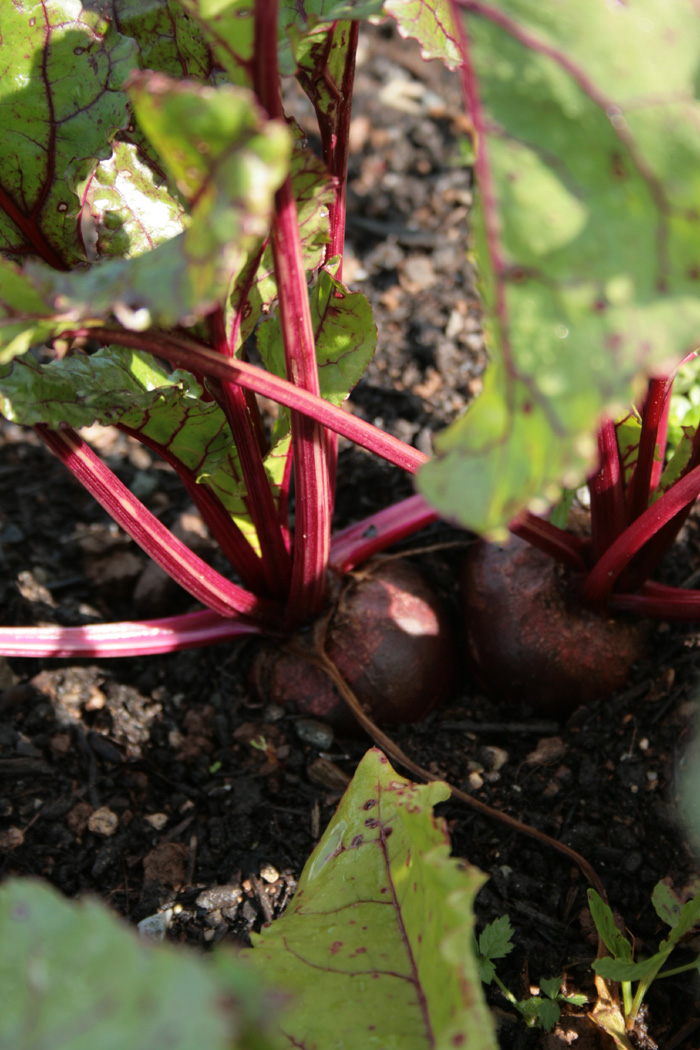
This Nigel Slater recipe is for a cake that’s rich, moist and oozing. It’s recommended by Danny Barry, Camel CSA’s treasurer. “Ideal for supper parties,” she says. It’s from Nigel Slater’s Tender Volume 1.
Serves: 8 as a dessert
Preparation time: 30-40 minutes
Cooking time: 40 minutes
Ingredients
250g beetroot
200g fine dark chocolate (70% cocoa solids)
4 tbsp hot espresso coffee
200g butter
135g plain flour
1 heaped tsp of baking powder
3 tsp good-quality cocoa powder
5 eggs
190g golden caster sugar
Crème fraîche and poppy seeds, to serve
Method
Lightly butter a 20cm loose-bottomed cake tin and line the base with a disc of baking parchment. Set the oven to 180C/gas mark 4.
Cook the beetroot, whole and unpeeled, in boiling unsalted water. Depending on their size, they will be knifepoint tender within 30 to 40 minutes. Young ones may take slightly less. Drain them, let them cool under running water, then peel them, slice out their stem and root, and blitz to a rough purée.
Melt the chocolate, snapped into small pieces, in a small bowl resting over a pot of simmering water. Don’t stir. When the chocolate looks almost melted, pour the hot coffee over it and stir once. Cut the butter into small pieces – the smaller the better –and add to the melted chocolate. Dip the butter down under the surface of the chocolate with a spoon (as best you can) and leave to soften.
Sift together the flour, baking powder and cocoa. Separate the eggs; put the whites in a mixing bowl. Stir the yolks together.
Now, working quickly but gently, remove the bowl of chocolate from the heat and stir until the butter has melted into the chocolate. Leave for a few minutes, then stir in the egg yolks. Do this quickly, mixing firmly so the eggs blend into the mixture. Fold in the beetroot. Whisk the egg whites until stiff, then fold in the sugar. Firmly but tenderly fold the beaten egg whites and sugar into the chocolate mixture. A large metal spoon is what you want; work in a deep, figure-of-eight movement but take care not to over-mix. Fold in the flour and cocoa.
Transfer quickly to the prepared cake tin and put in the oven, turning the heat down immediately to 160C/gas mark 3. Bake for 40 minutes. The rim of the cake will feel spongy, the inner part should still wobble a little when gently shaken.
Leave to cool (it will sink a tad in the centre), loosening it around the edges with a palette knife after half an hour or so. It is not a good idea to remove the cake from its tin until it is completely cold. Serve in thick slices, with crème fraîche and poppy seeds.
Nigel Slater adds:”The serving suggestion of crème fraîche is not just a nod to the soured cream so close to beetroot’s Eastern European heart, it is an important part of the cake.”
If you liked this from Nigel Slater, why not try his Beetroot seed cake?
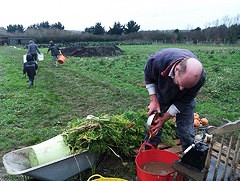
March 8, 2012
Everyone will have:
* onions (Camel CSA)
* salad leaves – mizuma, mibuna, pak choi, red mustard, rocket, endive, mixed lettuce (Camel CSA)
* carrots (Camel CSA)
* beetroot (Camel CSA)
* leeks (St Kew Harvest)
sprouting broccoli (Restharrow Farm, Trebetherick)
potatoes (Burlerrow Farm, St Mabyn)
Standard boxes will have extra potatoes and onions plus:
* red cabbage (Camel CSA)
* swede (Camel CSA)
cauliflower (Camel CSA/Restharrow Farm)
* = grown to organic principles
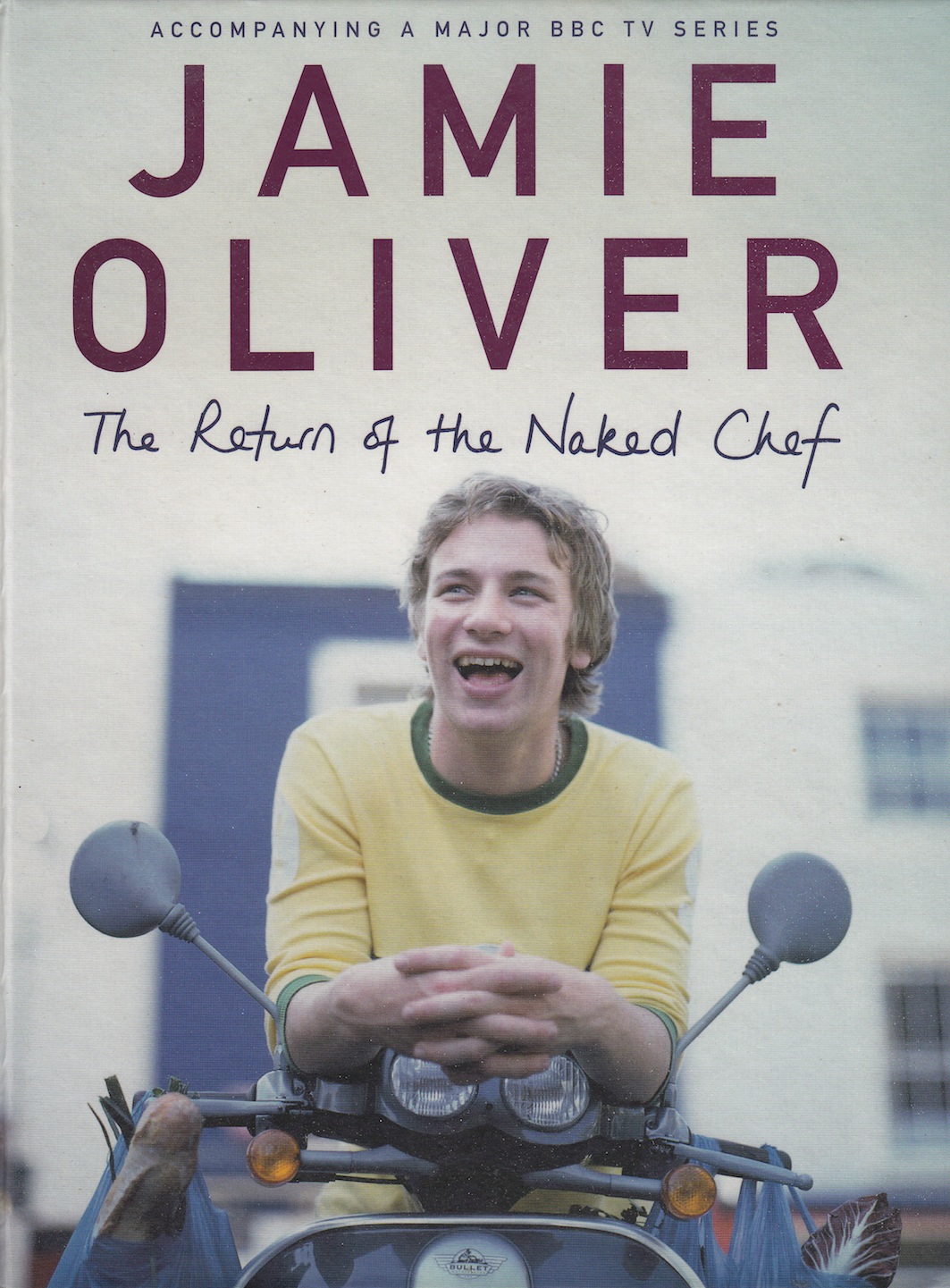
March 3, 2012
A pasta recipe from Jamie Oliver’s Return of the Naked Chef to make good use of the cabbage and garlic from this week’s veg boxes.
Serves 4
Preparation/Cooking: 15-20 minutes
Ingredients
10 rashers of pancetta or dry-cured streaky bacon, thinly sliced
olive oil
1 clove of garlic, finely chopped
1 good handful of thyme, leaves picked
1 large Savoy cabbage (outer leaves removed) quartered, cored and finely sliced
1 handful of grated Parmesan cheese
455g dried farfalle, the best you can get
salt and freshly ground black pepper
extra virgin olive oil
200g buffalo mozzarella, cut into 1cm dice
2 handfuls of pine nuts, lighly toasted
Method
In a pan fry your pancetta in a little olive oil until lightly golden. Add the garlic and thyme and soften. Add the Savoy cabbage and Parmesan, then stir and put the lid on the pan. Cook for a further 5 minutes, shaking every now and again, while you cook your farfalle in salted boiling water until al dente. When the cabbage is nice and tender, season and loosen with some nice peppery extra virgin olive oil. Toss the drained farfalle into the cabbage and at the last minute mix in the mozzarella and pine nuts. Serve immediately.
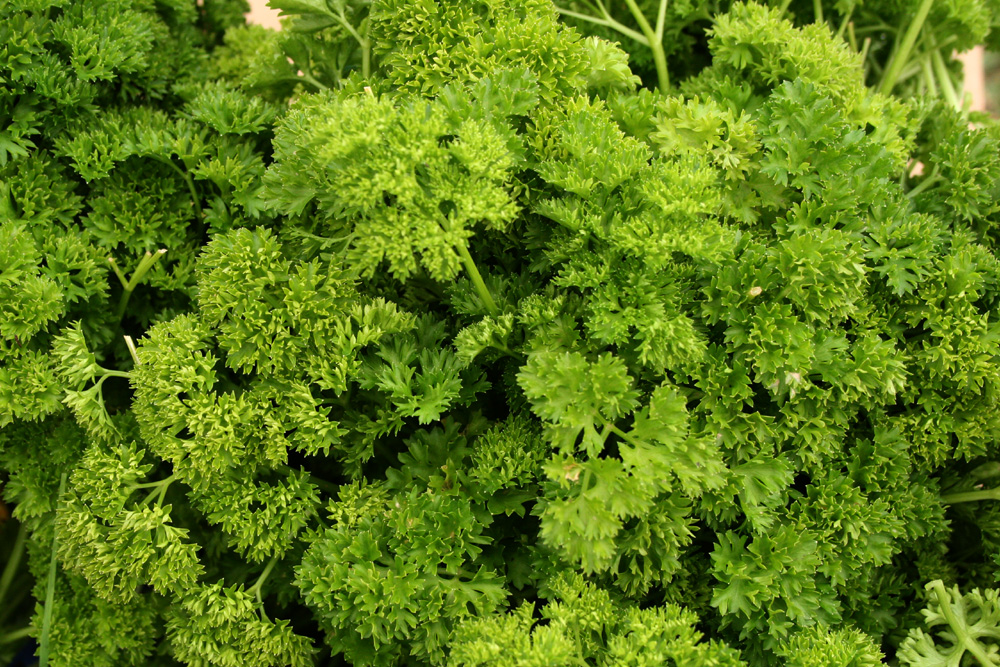
March 1, 2012
Everyone will be getting:
* onions (Camel CSA)
* garlic (Camel CSA)
* carrots (Camel CSA)
* parsnips (Camel CSA)
* savoy cabbage (Camel CSA)
* parsley (Camel CSA)
cauliflower (Restharrow Farm, Trebetherick)
potatoes (Burlerrow Farm, St Mabyn)
Standard boxes will have extra potatoes and onions plus
* swiss chard (Camel CSA)
* beetroot (Camel CSA)
sprout stalk (Restharrow Farm)
* = grown to organic principles


